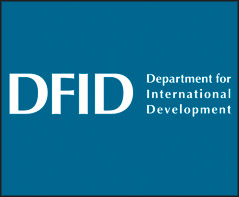Crop diversification, increasing the productivity and production of farmers through small-scale irrigation projects, improving local market systems, and other actions being implemented by the government could give a strong push to the eradication of hunger and malnutrition in Malawi, Director-General José Graziano da Silva said today, following a high-level discussion with President Joyce Banda of Malawi and EU Development Commissioner, Andris Piebalgs.
“It was interesting to hear about government programs to support small-scale livestock production and crop diversification,” Graziano da Silva said.
“FAO is ready to increase its assistance to develop agriculture, improve food security and increase the income of poor families in Malawi. Linking agriculture to social protection and empowering gender are ways to consolidate and build on the gains so far,” added the FAO Director-General.
He also noted the importance of involving the private sector and civil society organizations in the fight against hunger and malnutrition and building the government’s capacity.
Graziano da Silva and Piebalgs are leading an EU-FAO joint mission to Malawi to discuss with the Government ways to support increasing food security and sustainable agricultural production in the country.
At the meeting, President Banda highlighted the presidential initiative to diversify and improve local production and nutrition that was launched two weeks ago. She added that small-scale irrigation projects and marketing assistance to absorb the increased production by farmers could encourage Malawian farmers to produce even more.
EU Development Commissioner Andris Piebalgs noted the importance of addressing agriculture, food security and malnutrition together in a coherent and coordinated manner.
FAO, the EU and the Government of Malawi also agreed that sustainable land use and the rights that go with it should be part of the rural development work being done. This effort will be supported by the national implementation of the Voluntary Guidelines on the Responsible Governance of Tenure of Land, Fisheries and Forests in the Context of National Food Security, which were endorsed in May 2012 by the Committee on World Food Security.
Learning from programmes that work
According to the FAO Director-General, Malawi has made important progress against hunger: “It is on track to meet the first Millennium Development Goal and can realistically set even higher targets.”
However, he recalled that the country still faces many challenges and that many of them are immediate.
“As President Banda pointed out, late rains in the current agricultural season put additional pressure on food security especially in the southern region,” he said.
Banda, Graziano da Silva and Piebalgs also discussed how Malawi could benefit from the experiences of and lessons learned from other countries in tackling hunger and malnutrition, such as the Brazilian Zero Hunger Strategy. President Banda welcomed the proposal and also gave her support to the partnership between FAO, the African Union and Instituto Lula to intensify efforts to end hunger in Africa.
Graziano da Silva and the EU Commissioner are also visiting several EU and FAO projects during their stay in Malawi. In Chingonthi, for example, FAO supports a community grain storage project that aims to reduce post-harvest losses of maize by improving storage facilities and marketing.
The communities will receive further support and training to ultimately become cooperatives, so that they can scale up their farming activities with better market integration.




